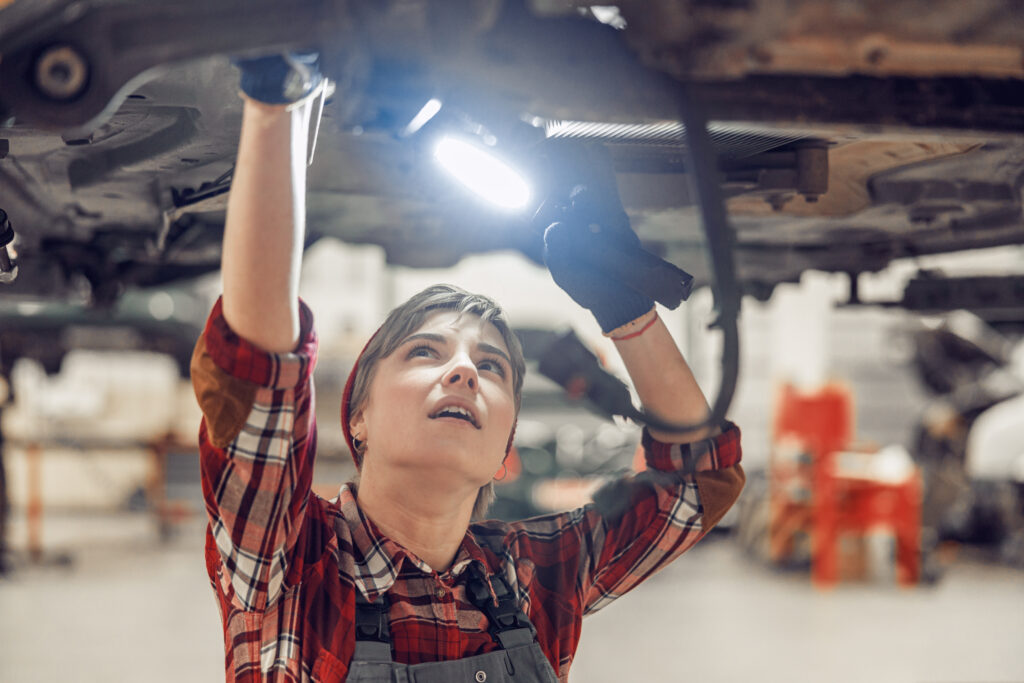Whether it’s biting your nails or popping your knuckles, we all have bad habits. Those little things that we don’t think are that serious can create bigger problems down the road.

Bad Driving Habits
Another aspect of life that people have bad habits in, whether they know it or not, is when they are driving. No one is a perfect driver but there are driving habits that can cause serious car issues long term. Here are seven common driving habits that might be damaging your car:
1. Overloading the Car
Every car has a designated weight capacity, and problems can happen when that weight is exceeded. Overloading the car puts extra strain on the transmission and engine. Transmissions can experience increased wear and higher temperatures when they have extra weight. The engine also has to work harder to cope with the increased weight, which can lead to overheating, reduced fuel efficiency, and accelerated wear.
Along with engine and transmission issues, overloading the car puts excessive stress on the suspension system. This includes the shocks and springs, and as a result, the car’s stability and handling can be compromised.
2. Driving on Empty
It is not uncommon for drivers to wait until their gas light turns on to fill up their gas tank. Driving on empty can be extremely risky. Even if your car says it can run another 30 miles on empty, that is not guaranteed. You may run out of gas completely in dangerous spots if you choose to risk it, and there is no way to guarantee that you will stay safe trying to get more gas.
Beyond safety reasons, driving on empty can damage your car. The risk of stalling, especially during uphill driving or sudden acceleration, increases if you are running on an empty tank. You may also see that your alternator has to work harder to generate energy and electricity that is needed to power the car, which can lead to increased wear and tear on the alternator’s components, potentially reducing its lifespan.
3. Slamming on Brakes
Being one of those drivers that is slamming on their brakes every few minutes is not only annoying for passengers, but it also puts stress on the car that can lead to damages. There are situations where slamming on the brakes is necessary to avoid a collision or accident, but frequently stopping quickly can lead to compromising the car’s safety, longevity, and performance.
When a car brakes suddenly, it generates a sudden and intense friction that can cause excessive heat. This type of braking eventually leads to reduced stopping power, decreased braking efficiency, and the need for frequent replacements.
4. Shifting Without Stopping
One of the most common driving habits that people don’t realize is damaging their car is shifting without coming to a complete stop. This often happens when you back out of a parking spot and shift from reverse to drive. An abrupt shift can put stress on the transmission, causing excessive wear.
When improper shifting occurs, the fluid pressure in the transmission is disrupted, impeding on the vehicle’s ability to properly lubricate and cool the internal components. This problem often results in increased friction that creates overheating in the transmission and premature failure.

5. Hitting Speed Bumps and Potholes Too Fast
It may be tempting to not slow down for speed bumps, but they are there for a reason. Speed bumps are often in school zones, neighborhoods, and parking lots to protect pedestrians who may be on the road. Going too fast over speed bumps causes the suspension to compress forcefully. Foregoing speed bumps can also lead to a rougher ride, increase risk of accidents, and reduced handling.
Potholes are another roadblock that can get in the way of a smooth drive. Potholes are formed by holes in the road that grow from weather conditions, heavy traffic, and natural erosion. Like going too fast over speed bumps can damage the suspension, potholes have the same effect. Since the car goes down into the pothole, tires can be damaged, along with cracked and bent rims. Potholes can occasionally appear quickly, but when you have time to react, make sure you give yourself time to safely avoid them.
6. Ignoring Warning Lights
Warning lights are most commonly on the dashboard of a car, and they indicate potential dangers and maintenance needed for the car. These lights are indicators that different parts of the car need attention, like the brake system, tire pressure, transmission, battery, and oil levels.
Ignoring these warning lights can lead to serious consequences that can lead to compromising the safety of the passengers, damaging the car’s systems, and potentially costly repairs. In order to avoid major damages to your car, pay attention to those warning lights and address them urgently if they appear.
7. Riding the Brakes
Riding the brakes means that you keep your foot pressed down on the brake pedal when no brake is needed, or for a prolonged period of time. Constant friction between the brake pads and rotors is created when you keep your foot on the brake. This generates brake fluid to heat up and boil, leading to brake fade, along with causing the brake components to wear down quickly. You can tell that your brakes are not being as efficient when it feels like a soft or spongy pedal feel, with increasing distance required to come to a stop.

Save Money on Your Vehicle
These seven common driving habits may be damaging your car so it is important to be aware of them. Now that you know these habits don’t do any good for you, you can start implementing good habits. One of the best things you can do to maintain the condition of your car is to get it checked and repaired when needed. Fixing small problems will ultimately save you more money in the long run.



